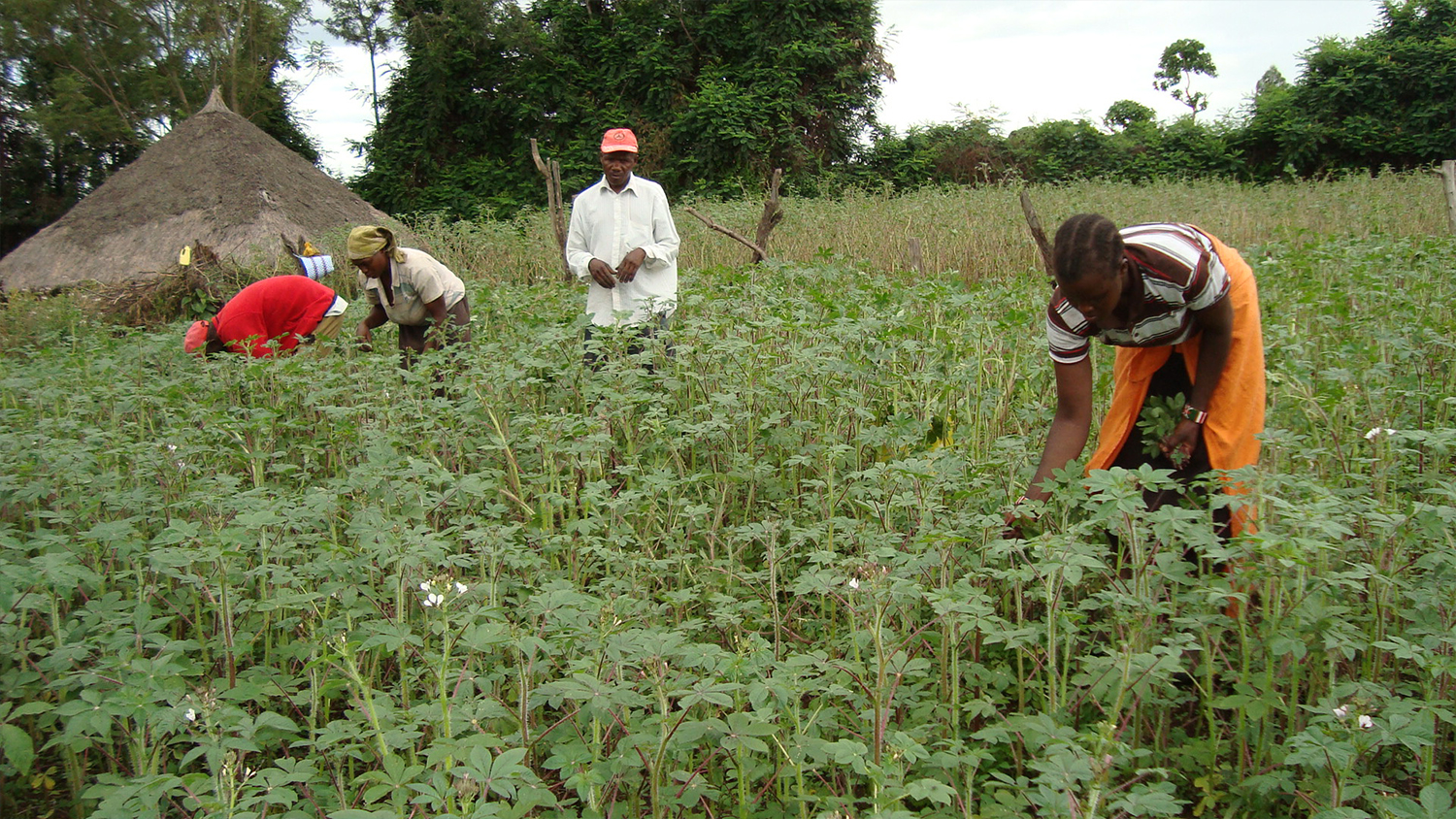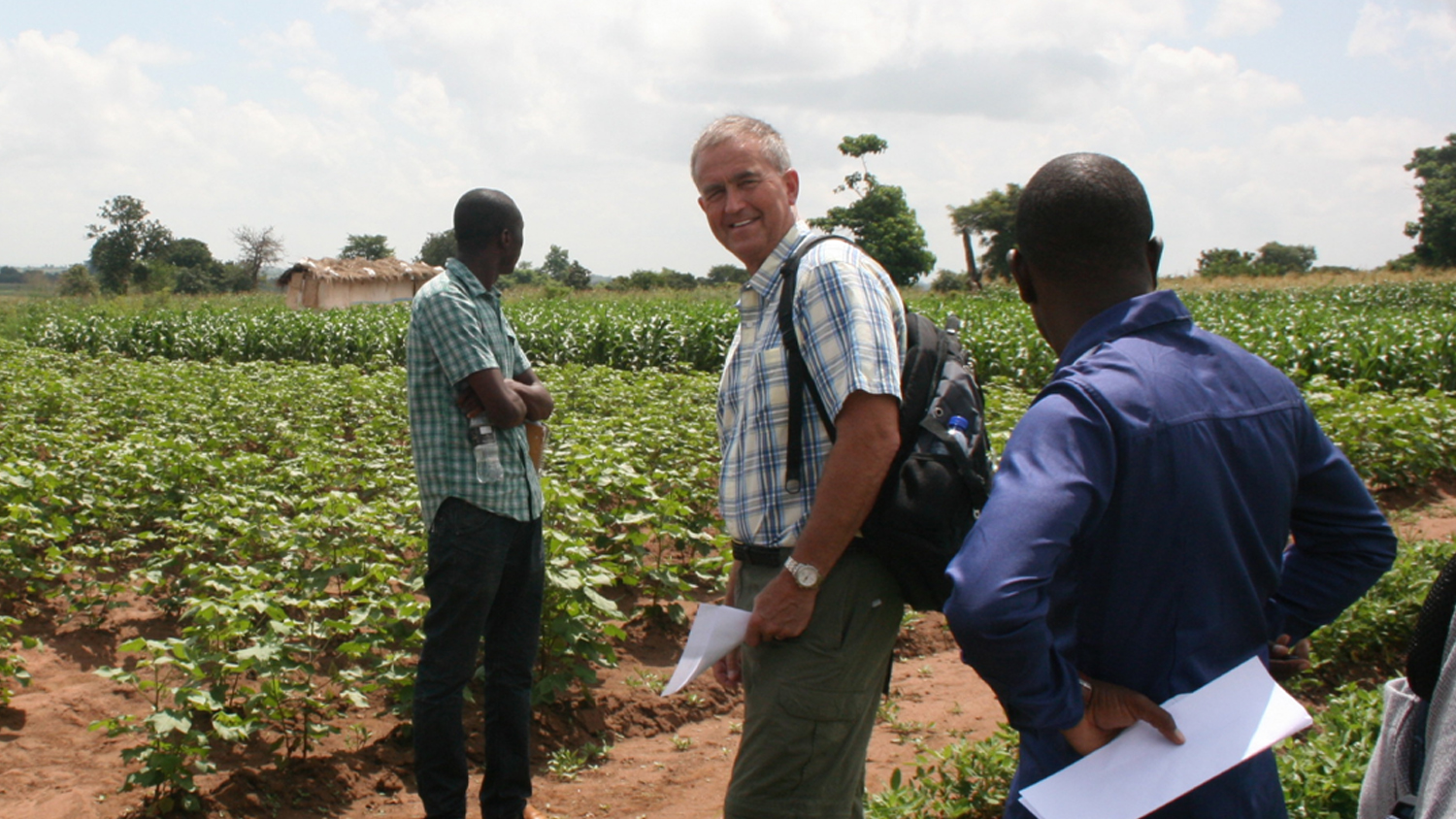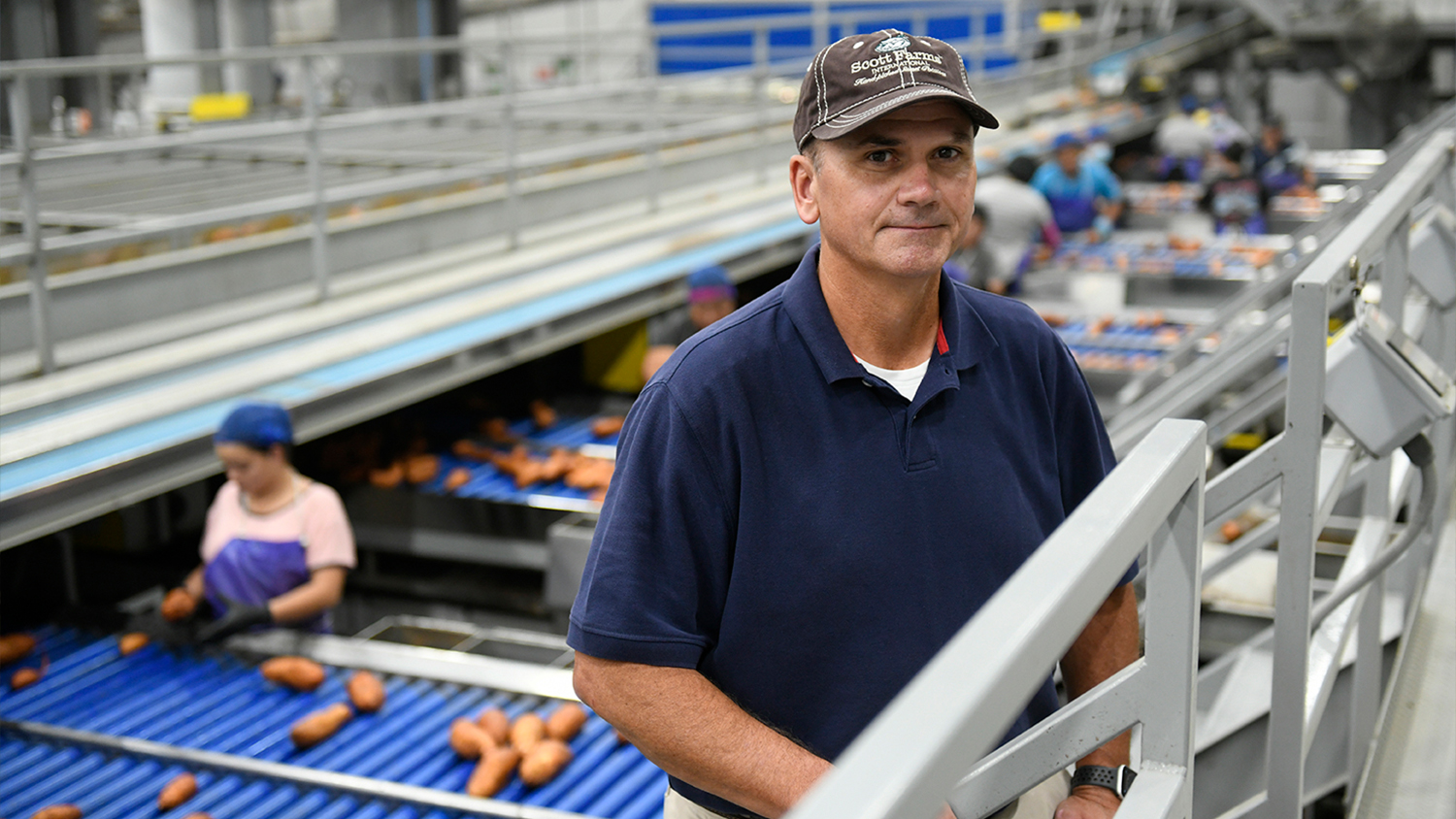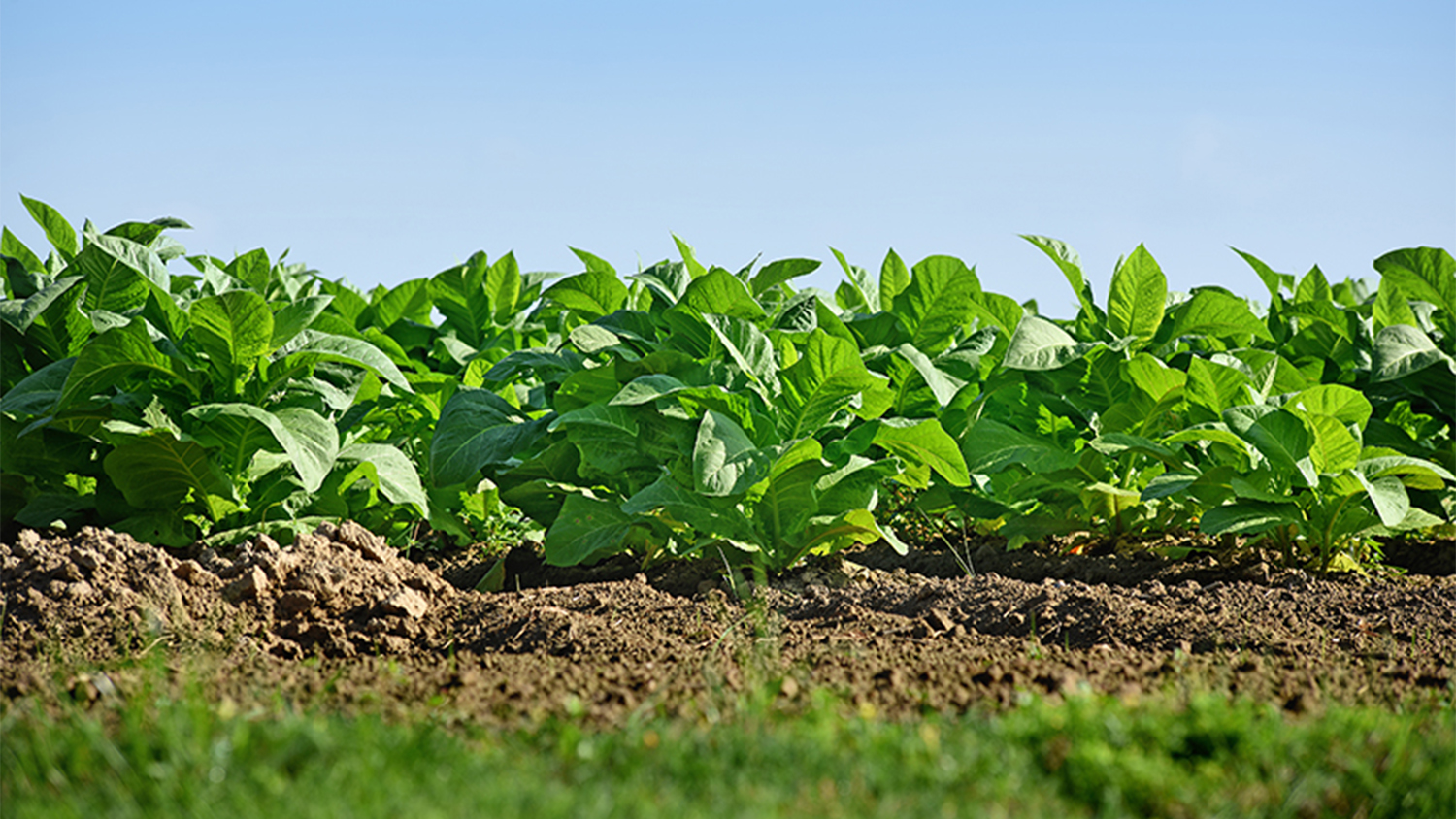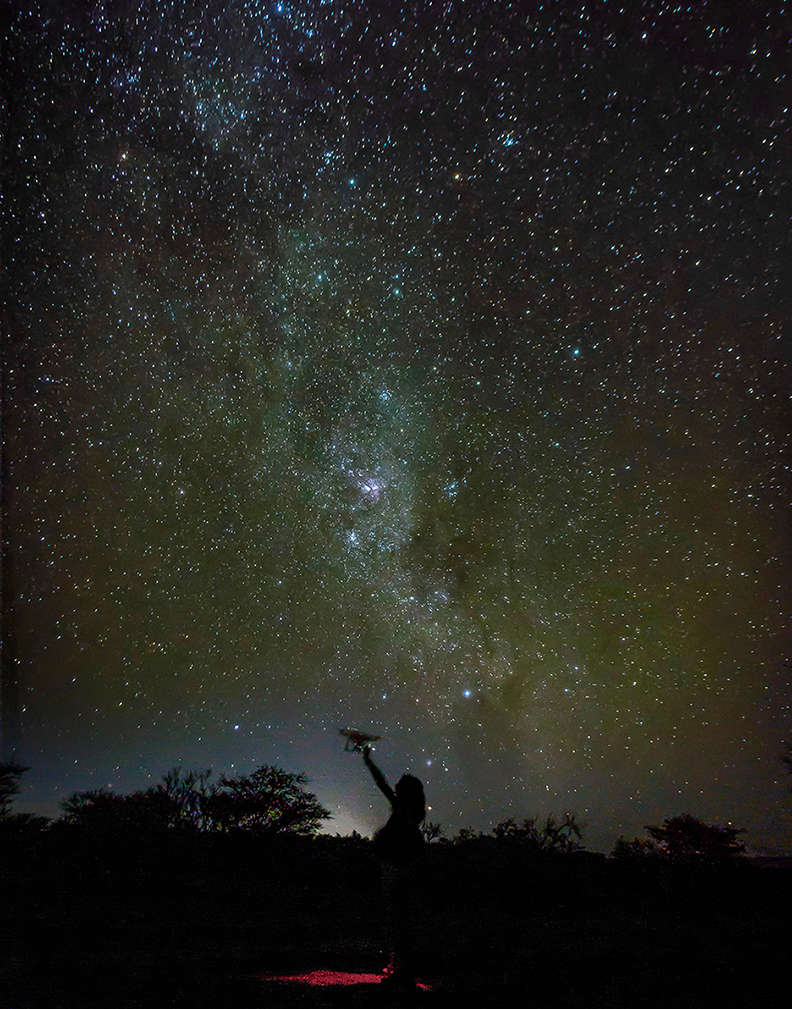
Best of All Possible Worlds
Who benefits from international study? NC State students who are preparing to work in a global economy, as well as top students from around the world who contribute to vital research in North Carolina.
Christina Burnham gripped an ultraviolet light as darkness fell in the desert of Namibia.
Under the purple light, a scientist pointed out glowing scorpions in trees near the camp where Burnham and her fellow NC State students would sleep that night.
“Disconcerting, but it was fine,” Burnham says, chuckling at her memory of Gobabeb. The research site, backed by tall dunes, surrounded by gravel plains and equipped with environmental monitoring devices, made her think of Tatooine in ‘Star Wars.’
When she clicked off the UV light, she was stunned.
“I just happened to look up, and for the first time in my life, I was seeing the Milky Way, and all the millions of stars in the sky.
“I was just like, ‘Guys, look up! Turn your lights off.’ Then they did. Everything went dark, and then you just hear these gasps of surprise from kids in the Raleigh area who had never once, with all the light pollution, seen anything beyond a couple of stars in the sky. That was a really special moment for me.”
International experiences like that, beginning as an undergraduate at NC State, helped inspire Burnham to take her passion for animals to the next level. She’s now wrapping up a master’s degree in animal science and nutrition. With faculty advisor Shweta Trivedi, she hopes to return to Southern Africa for more rhino microbiome research, which was disrupted by the pandemic.
‘No more pets’
Growing up in Fayetteville, North Carolina, Burnham surrounded herself with animals of all kinds, including a goose named Applesauce, “the noisiest thing alive.”
“I constantly heard from my parents, ‘No more pets, no more animals in the house.’ Then I would bring another animal into the house.”
Her parents valued education and loved science. Her mother, originally from Mexico, served in the U.S. Army and earned a master’s degree with military educational benefits.
“People ask me, ‘Why are you the way you are?’ Well, look at my mom. Failure’s not an option, which is one of her catchphrases. That was my blueprint.”
Her late father, born in France to an American serviceman, shared his curiosity about the natural world. He owned a car repair shop where he’d do electrical engineering experiments in the back while waiting for customers.
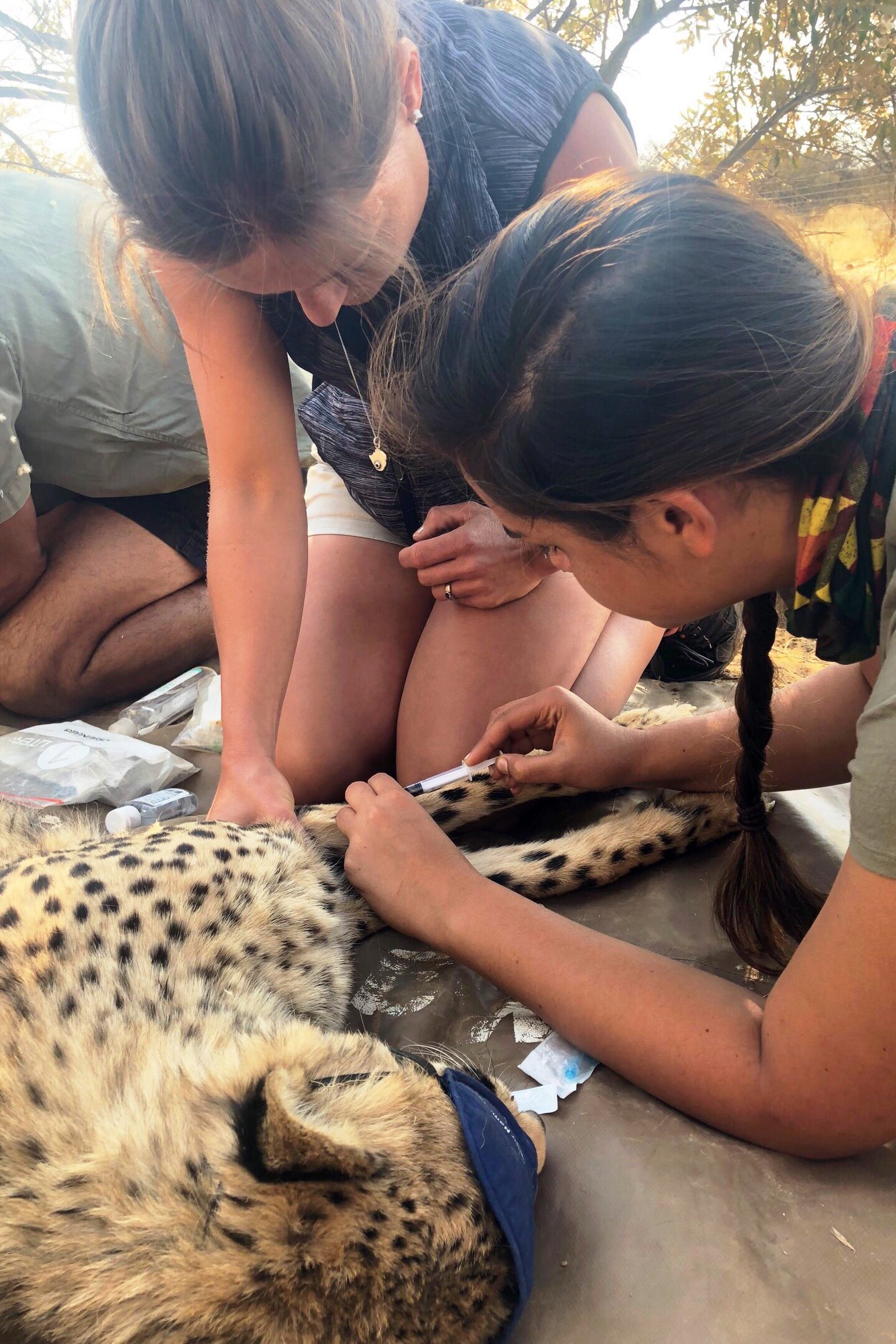
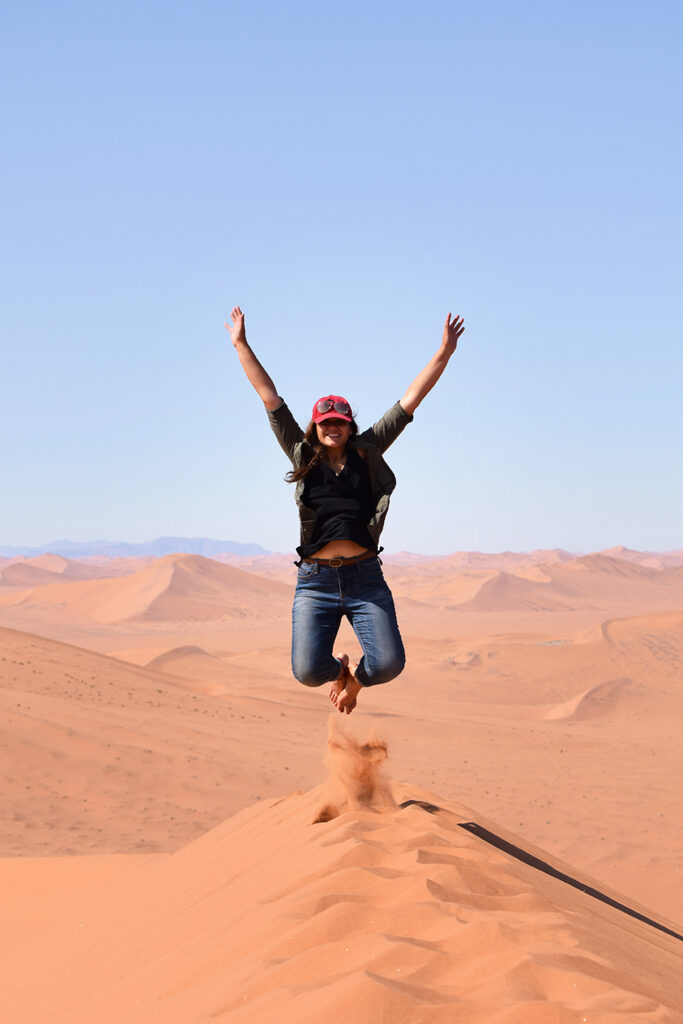
Zoology and Poultry Science
While many students struggle with choosing a major, Burnham’s mind was set on NC State, her uncle’s alma mater. The zoology program stood out from general biology degrees.
“Having started with zoology, I added a double major in poultry science, because I love birds, and poultry science offered a lot of courses pertaining to birds, like incubation and breeding, avian anatomy and physiology, avian diseases, that I might not have been able to fit into just the zoology schedule,” Burnham says.
She also found financial support in CALS to help finish her degree. A month into her first semester of college, she began work in a research lab with the late John Brake, a poultry scientist, learning the fundamentals of research: data entry, discipline, cleaning, interacting with people and designing projects.
“I credit that really with me becoming interested in research and then seeing it as a possibility in the future.”
Fighting Poachers in Namibia
In 2018, Burnham spent two and a half months in Namibia as part of a team of life sciences and engineering students in NC State’s Wildlife Aerial Observatory program. They flew small quadcopter and large fixed-wing drones, both to count wildlife populations and to test the possibility of using drones to stop poaching.
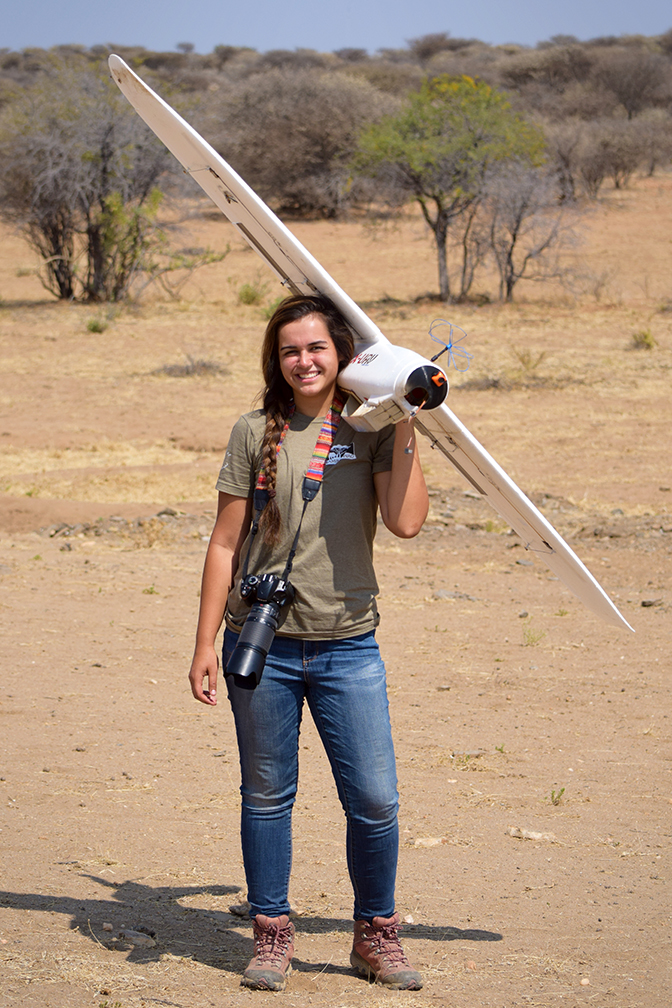
A real-world test happened when two adult rhinos were moved to a sanctuary adjacent to where the students were staying. Poachers found out and began prowling, but the group sent up drones, and the noise and threat of surveillance drove the intruders away.
“I would have liked to catch them, of course, but they’re very sneaky,” Burnham says.
With help from the women on the team, Burnham did capture a memorable image of drone research in Namibia against the backdrop of the Milky Way. She won the NC State Research Image Contest’s photography category in 2020.
The student team returned to Raleigh that fall in time to write up their findings, which were published in scientific journals.
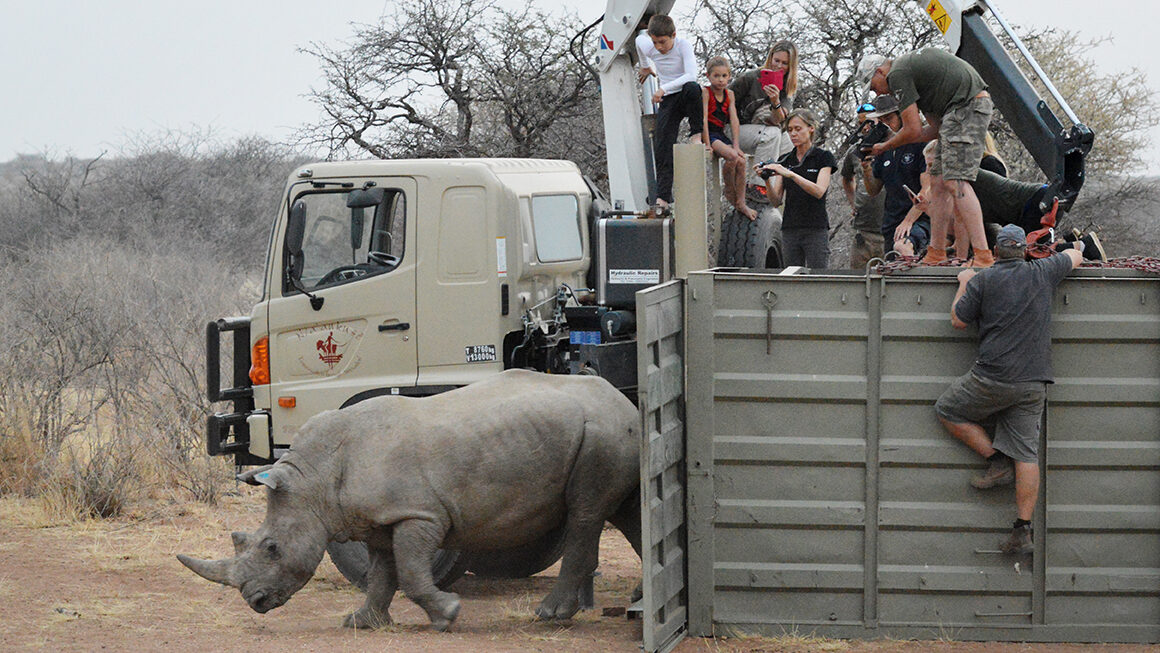
courtesy of Christina Burnham.
Birds and Rhinos
While working with Sylvan Heights Bird Park in Halifax County to gain zookeeping experience, Burnham was surprised to receive an email from Shweta Trivedi, director of NC State’s VetPAC program, “the animal science professor you needed to know to get into vet school.”
Trivedi needed a master’s student to do research on southern white rhinos in South Africa. Burnham’s experience in Namibia, which included shadowing wildlife veterinarians and becoming familiar with the culture, earned her the job.
Their original plan called for studying rhino blood biochemistry for different immobilization drug combinations, using samples collected abroad.
When the pandemic halted travel, Burnham switched to studying the gut microbiome of the rhinos, which, like horses, have a single stomach and use microbes to help digest food in the hind gut.
One of her committee members, J.B. Minter, is director of animal health and the Hanes Veterinary Medical Center at the North Carolina Zoo in Asheboro, which has one of the few breeding populations of southern white rhinos in the U.S.
Burnham collected samples at the zoo for her thesis research, which she’ll defend this fall. She studied seasonal changes in rhino gut microbes and techniques for carrying out future research.
“With the help of a seed grant from the Office of Global Engagement, we’re definitely trying to get back to South Africa in 2022 to go collect more samples from actual wild animals for comparison against captive animals to further Christina’s research,” Trivedi says.
Burnham’s research won first place in the master’s research competition in the Department of Animal Science.
“It shows they see merit in international and wildlife research, which was validating,” she says.
Trivedi, who started annual rhino research trips to South Africa to give students real-world experience with southern white rhino conservation and management, is looking forward to resuming the work. She has received U.S. Department of Agriculture grants to fund travel for undergraduate students from underrepresented groups, along with advising graduate and veterinary students.
“The students are so engaged,” Trivedi says. “Field research involves next-level thinking and hard work, and it shows great willingness from students to take content learned in class and apply it. It is very gratifying to see them demonstrate growth through poster presentations and manuscript preparation.”
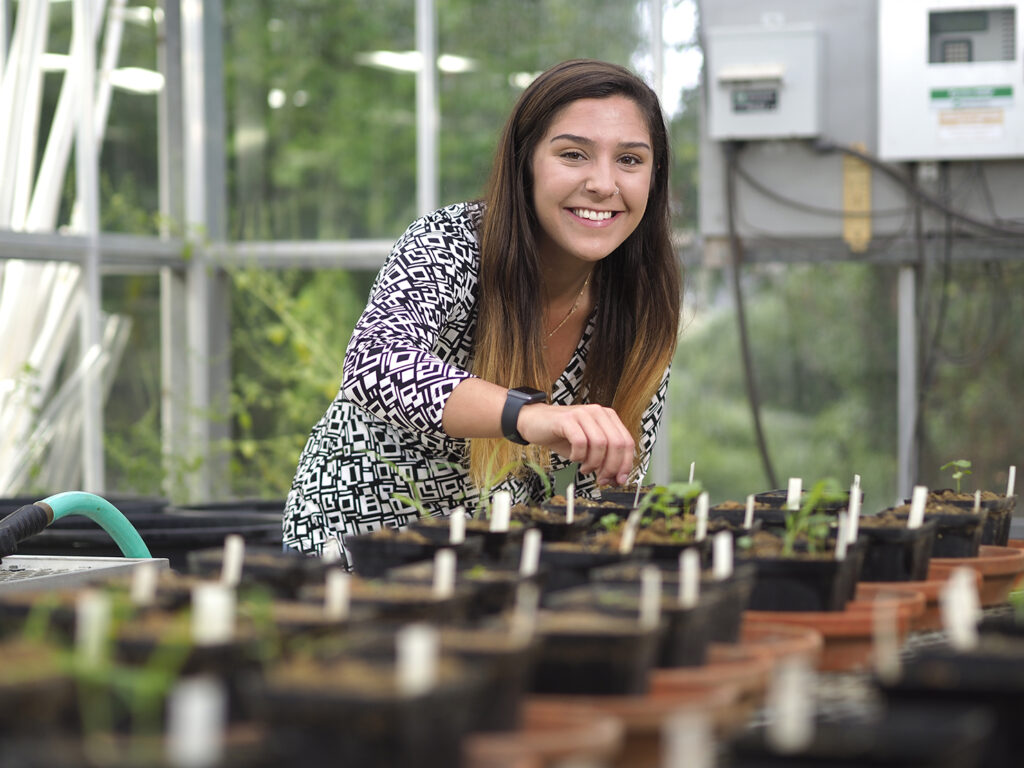
Small Town to Spain
Alex Veverka’s LinkedIn profile says she’s a “small-town student with a global perspective.”
That description will serve the NC State senior well as she takes the next steps toward her career, says Jose Cisneros, director of CALS International Programs, who points to the Triangle’s recent ranking as the nation’s fourth-largest biotech hub.
“Are we preparing our students to work in companies that are global? All of these biotech companies are not only looking at the U.S. market; they are looking at the world.”
Veverka started her international experiences in Spain as a freshman through CALS International Programs’ Research Pack Abroad program.
A native of Williamston, North Carolina, population 5,000, Veverka appreciates her roots.
“It brought me so much happiness and so much comfort, being in that community. Even though I didn’t come from a farming background specifically, I knew I wanted to go to NC State, really get involved and start learning about the community I had grown up in.”
Prodded by her mom, a science teacher, Veverka took part in NC State STEM activities, camps and ag discovery programs. And in high school she found that she loved Spanish class and wanted to become fluent in the language.
“My sophomore year of high school was the first time I was like, ‘Oh, I want to go study abroad for a semester,” she says. “But money was always the deciding factor, the one thing I never had enough of to get me there.”
That changed as a college freshman, when Veverka was named a Goodnight Scholar. The full scholarship for science, technology, engineering, mathematics and education majors from low- and middle-income North Carolina families provides funding and opportunities for students to grow professionally and personally. As a freshman, she found a match for her dual majors in crop and soil sciences and Spanish at the Polytechnic University of Valencia in Spain through Research Pack Abroad.
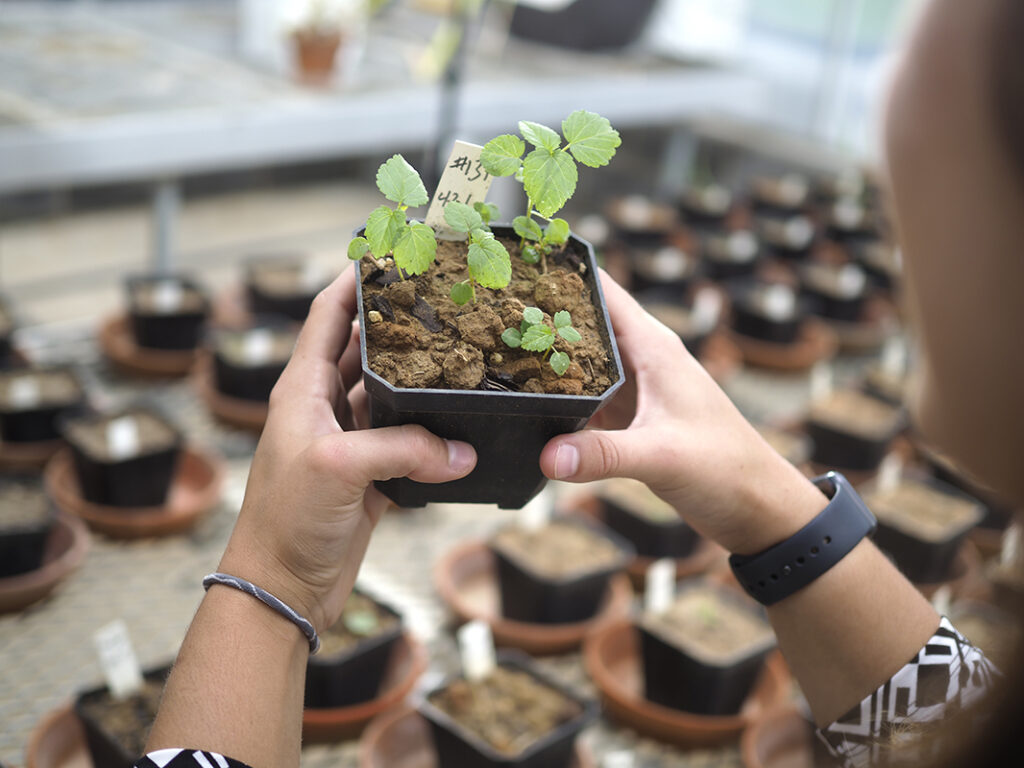
“Being able to speak Spanish day in and day out and do the agricultural research, which I love, that was for me the perfect combination of everything I wanted to learn that summer,” Veverka says.
Research Pack Abroad suits students who are up to the challenges of traveling independently, navigating another culture and working in a language they may not speak fluently, explains Adrienne Tucker, who directs the effort for CALS International Programs.
“There’s no faculty with them. They go for two months to a research institute, where they are contributing to ongoing research. So they integrate with the institute, and they become part of a team.”
Working with a team researching biological control methods in citrus crops, Veverka gained a different perspective.
“The area I studied there, biological control, working on more organic-like solutions, would be an experience that I don’t think would be easy to find here (in the U.S.),” she says.
Veverka maintains international friendships and has returned to Valencia to meet with researchers.
“NC State’s network to Valencia Polytechnic, part of a more global network, is even bigger because of me.”
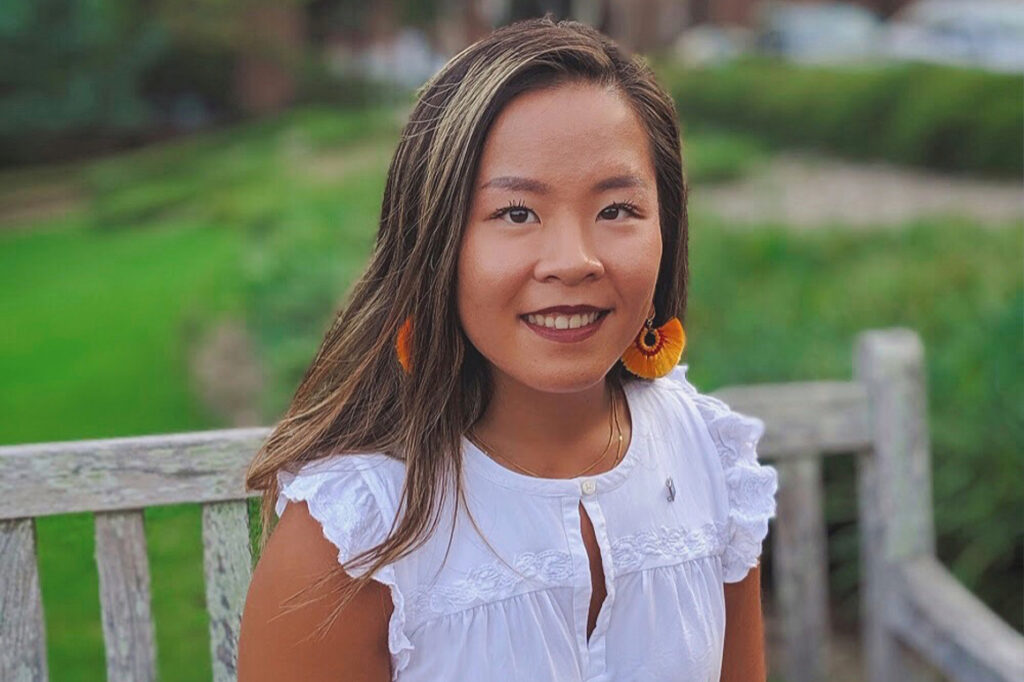
Living and Learning 9,000 Miles From Home
At about the same age that Veverka first thought of studying abroad, NC State senior June Khongpatimakorn was waiting to find out if she’d been admitted to a top-rated science high school in Bangkok, Thailand. Khongpatimakorn had been chosen as one of the top 30 finalists.
“I had no intention of going abroad whatsoever,” she says. However, the Bangkok application also required the exam needed to qualify for international study.
She didn’t get a spot in Bangkok. “I was kind of heartbroken at that time, so my parents said, ‘Why don’t you take a break for a year and then go abroad? That way you can get some life experience and learn some English.’”
Khongpatimakorn received a scholarship to spend a year of high school in Wilson, North Carolina, moving almost 9,000 miles away from Khon Kaen, Thailand, at 17.
“It was a big culture shock, because I came from a city and Wilson is a lovely small town, but there’s no big, big buildings like where I came from,” she says. “But I fell in love with the town and the school system and everything that’s here, so I decided to learn how to handle my visa and came back for the next year.”
She lived with two host families, becoming more independent and making plans to apply to college in the U.S.
“I really came out from my comfort zone of being scared to talk to strangers or being scared to express what I feel and my opinions,” she says.
After graduating from high school, Khongpatimakorn enrolled at the University of North Carolina Wilmington. Finding success in math and science courses, she entered a 2+2 engineering program, completing the first two years at UNCW before transferring to NC State as a biological engineering major.
“I chose biological engineering, bioprocessing engineering, because I feel that natural sources, recycling and reuse are something that we’ll need in the future,” she says. Career options in working with food, medicine, beer and wine appeal to her.
She’s reveled in studying in Hunt Library, teaching yoga classes on campus and becoming a Wolfpack sports fan.
“When I went to my first football game, I was like, Wow! I got goosebumps,” she says, remembering the experience of singing the alma mater at game’s end. “NC State students are so bonded together.”
This summer, she worked as an intern with United Natural Hemp Extracts in Wilson, learning about the process of extracting CBD oil. In addition, she was selected as a student delegate for the Consortium for Advanced Bioeconomy Leadership Education.
- Categories:
